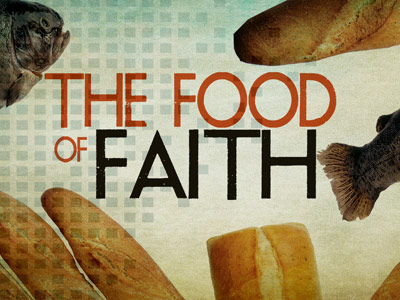-
Never Unloved Series
Contributed by Joseph Smith on Jun 2, 2002 (message contributor)
Summary: Some receive love, but reject it; others never know that they are loved. In either case, the Cross is evidence that we have never been unloved.
We need to think not only about the way we relate to other
people, but also about how we receive them. It is not
enough simply to be friendly and cordial. We also need to
look at how we receive people when they extend themselves
to us.
I went to a meeting this week, where all the participants were
arranged at round tables. I did not see anyone in the room
that I knew, so I just sat down where there was a vacant
seat. It did not take me long to discover that all the other
people at that table knew each other, and were, in fact, all
from the same church. They had a conversation going about
some forthcoming church activity and were all abuzz with
that. But the four of them did acknowledge that there was
someone who was not in the loop, and they began to reach
out. They asked me who I was and where I was from, they
told me about their church activity, and just brought me into
their circle. It felt good, inclusive, loving. I noticed that my
own comfort level improved and that my ability to reach out
to them increased. I not only felt accepted; I felt ready to
reach out. Just because these folks had broken out of their
inner circle and had included me, I felt loved and thus ready
to give love.
We need to think not only about the way we relate to people,
but also about how we receive them. Not only about how we
love, but also about how we receive love. For the truth is
that some of us receive love, reject it for a time, but then
come back to it; and some of us have never known that we
are loved. God wants us today to know that whoever we
are, we have never been unloved.
These two kinds of people I have mentioned – people who
receive love, reject love for a time, and then grow to accept
it; and people who were loved, but never knew it – these two
kinds of people are not only addressed in today’s Scripture.
They are also illustrated in one of Jesus’ great parables. We
know it as the parable of the prodigal son, the young man
who wasted his share of his father’s gifts in reckless living.
There is another character who is important, too, and that is
the elder brother, who stands over in the corner, grumbling,
complaining, and feeling rejected. And then there is a third
character in the story – maybe the central character. One
Bible scholar says we should call the story the parable of the
waiting father. Jesus’ wonderful story illustrates so
beautifully the theme for today that I have asked these three
folks to climb off the printed page and to tell us their stories.
It was not easy, but we did persuade the waiting father, the
wasteful younger son, and the skeptical older son, to come
today and share their stories.
Let me ask them, first, to introduce themselves. Father, we
give priority to age. Will you be first?
The Father: Like many of you, I’ve spent most of my adult
years on two things: my work and my children. I have
worked hard and have achieved some success. I have
enough to live on and be comfortable, and I have enough to
give my sons a good start. I have enjoyed my work, and,
although it was not always easy, I have felt fulfilled in all that
I have done.
I was blessed with two sons. I saw in each of them, different
as they were, something of myself. They worked, as I had
worked. They succeeded, as I had succeeded. I was
pleased with my sons. But they are different personalities.
My older son was like my shadow. Whatever I did, he did.
Wherever I went, he went. It seemed he wanted to be
exactly like me. I loved this boy, and I love him now.
My younger son was different. He experimented. He tried
things. He went out on the edge and attempted things his
older brother never even dreamed of. He has been a
challenge. But I love him too. Always have and always will.
Thank you. Which of you brothers would like to go first to
introduce yourself?
Younger son: I will. I like to be out front. I’ll enjoy speaking
to this crowd !
As my father has told you, there are two of us, and I’m the
younger. I guess I’ve always felt restless, because my
brother was allowed to do things that they said I wasn’t ready
for. I wanted to tend the sheep, but they said I couldn’t, not
yet. I wanted to go to the village dances, but they said I was

 Sermon Central
Sermon Central



